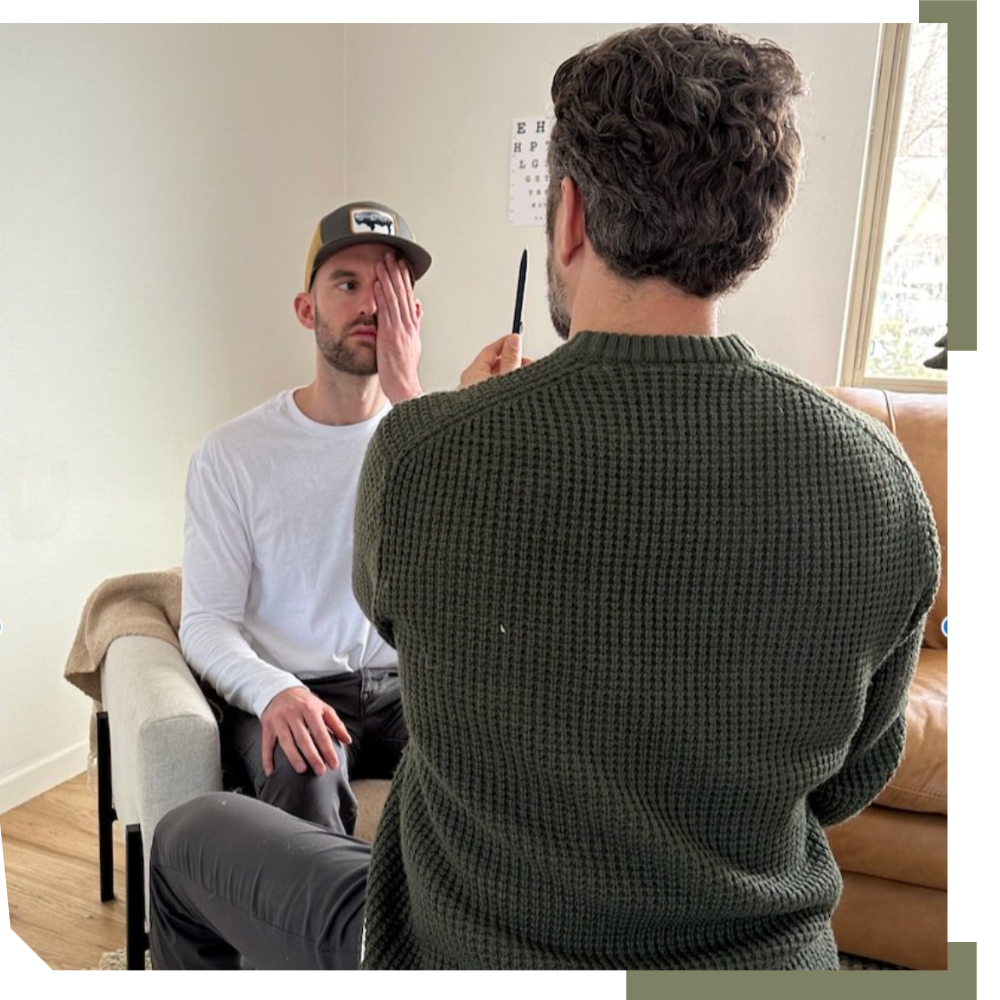Providing High Quality Concussion Care in Fort Collins, Colorado & Online
Expert Concussion Care
Personalized Treatment Plans
Convenient In Clinic & Virtual Care
Work 1-on-1 with Dr. Joe Burkeland
Recover Stronger with Complete Concussion Care
At Complete Concussion Care in Fort Collins, Colorado, I provide evidence-based concussion treatment to help you recover from head injuries and post-concussion symptoms. Whether you need in-person therapy or telehealth support, my goal is to restore your brain health and get you back to feeling and performing at your best. With expert guidance, personalized rehabilitation, and proven recovery strategies, I’m here to support you every step of the way.
Recover Stronger with Complete Concussion Care
At Complete Concussion Care in Fort Collins, Colorado, I provide evidence-based concussion treatment to help you recover from head injuries and post-concussion symptoms. Whether you need in-person therapy or telehealth support, my goal is to restore your brain health and get you back to feeling and performing at your best. With expert guidance, personalized rehabilitation, and proven recovery strategies, I’m here to support you every step of the way.
Outdoor Activities
Car
Accidents
Contact
Sports
Workplace
Accidents
Slip &
Falls
Your Recovery, Your Plan
Every concussion is unique, and your recovery plan should be too. At Complete Concussion Care, I use evidence-based rehabilitation to target the root cause of your symptoms—helping you regain balance, reduce headaches, and restore cognitive function. Whether in-person or virtual, my goal is to guide you toward a full recovery with expert, hands-on care.
Your Recovery, Your Plan
Every concussion is unique, and your recovery plan should be too. At Complete Concussion Care, I use evidence-based rehabilitation to target the root cause of your symptoms—helping you regain balance, reduce headaches, and restore cognitive function. Whether in-person or virtual, my goal is to guide you toward a full recovery with expert, hands-on care.
Let’s take the next step, together!
At Complete Concussion Care, I provide expert, one-on-one treatment designed to address the root cause of your symptoms. Whether you're dealing with dizziness, brain fog, headaches, or balance issues, I create personalized rehabilitation plans to help you heal. With a science-backed approach and hands-on care, I’ll guide you every step of the way toward restoring function and reclaiming your life.
Let’s take the first step together—your recovery starts today!
Let’s take the next step, together!
At Complete Concussion Care, I provide expert, one-on-one treatment designed to address the root cause of your symptoms. Whether you're dealing with dizziness, brain fog, headaches, or balance issues, I create personalized rehabilitation plans to help you heal. With a science-backed approach and hands-on care, I’ll guide you every step of the way toward restoring function and reclaiming your life.
Let’s take the first step together—your recovery starts today!
Meet Your Fort Collins
Concussion Specialist
Joe Burkeland - Doctor of Physical Therapy
After experiencing my own head injury, I dedicated my career to helping others recover. With a background in physical therapy and years of experience treating concussions, I provide evidence-based care to address dizziness, headaches, and cognitive challenges.
Having worked with athletes and individuals with persistent symptoms, I understand the frustration of slow recovery. My goal is to guide you through a personalized treatment plan so you can heal and get back to the life you love. Let’s take the next step together!
Meet Your Concussion Specialist
Joe Burkeland - Doctor of Physical Therapy
After experiencing my own head injury, I dedicated my career to helping others recover. With a background in physical therapy and years of experience treating concussions, I provide evidence-based care to address dizziness, headaches, and cognitive challenges.
Having worked with athletes and individuals with persistent symptoms, I understand the frustration of slow recovery. My goal is to guide you through a personalized treatment plan so you can heal and get back to the life you love. Let’s take the next step together!
Your Recovery,
Your Resources
I share expert concussion insights, recovery tips, and the latest research to help you heal.
Join our community at Complete Concussion Care and stay ahead in your recovery journey!
Success Stories: Real Recovery, Real Results
Ready to take the next step?
Ready to take the next step?
Your Concussion Recovery,
Your Resources
I share expert concussion insights, recovery tips, and the latest research to help you heal.
Join our community at Complete Concussion Care and stay ahead in your recovery journey!



































